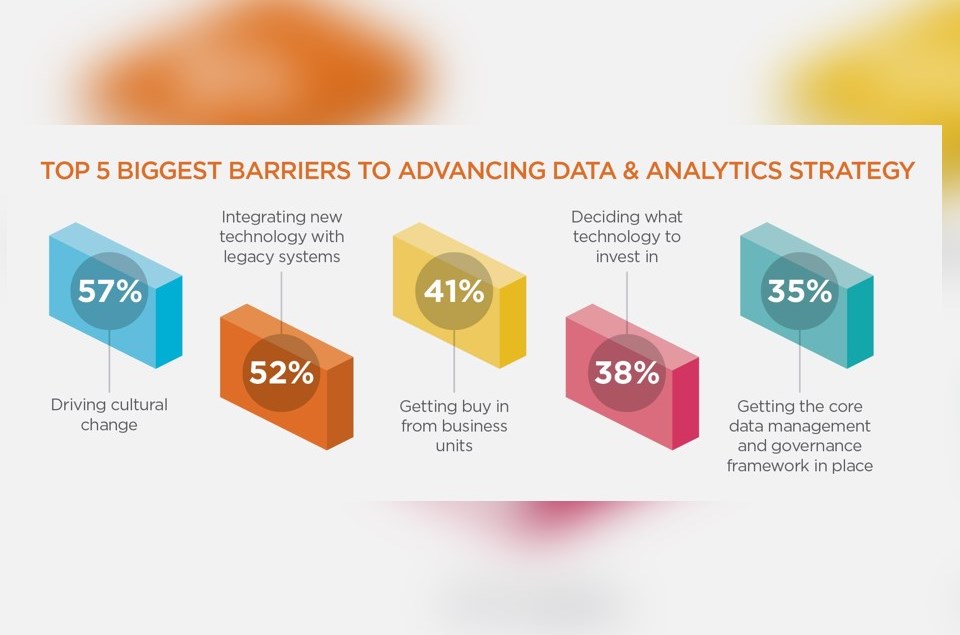We had an opportunity to interview Girish Balasubramanian, VP, Product Strategy, Customer Experience and Analytics at Western Union ahead of the upcoming Chief Analytics Officer, Spring happening on May 2-4, 2017 in Scottsdale, Arizona. In this wide-ranging conversation, we discussed his journey to becoming a data leader, the next big area of data investment for Western Union and their organisation’s persistent drive towards data democracy.
Corinium: Please tell us about your journey to becoming a data and analytics leader.
Girish Balasubramanian: The common thread throughout my years of formal education was math. Data is an integral part of how I have always made sense of life – from day-to-day issues to research puzzles. When I left academia for strategy consulting, I started off with Strategic Decisions Group, which uses decision analysis to frame and solve problems in a collaborative manner. Later on, as I went into product management, I simply wanted to know how well my product was performing and what actions I could take to improve the product. Risk management exposed me to logistical regression models and lots of data (“big data” in today’s jargon). I was exposed to the challenges related to the creation and management of big data. Eventually, along with like-minded colleagues, I pioneered test-and-learn and continuous learning techniques to encourage consumers to use bank-based payment methods in order to lower transactional costs. That is when I started hiring and growing an analytics team that supported these efforts and sometimes even drove these efforts. In my current role at Western Union, I have driven the creation of a quantitative, funnel-oriented approach to growing the digital business. We use this for everything – prioritising initiatives, defining team goals, evaluating individual performance and building forecasting models. Lately, we have been spending a lot of time tying customer feedback to the actual customer experience – and using this to identify and rectify problem areas in the customer journey. We have also embarked on text mining to isolate opportunities by auto-analysing customer feedback.
Corinium: Do you see your role changing/evolving in the next 5 years? If so, how?
Girish Balasubramanian: Tools have transformed yesterday’s complicated ad-hoc analyses into today’s automated reporting. When I look around, I can see that what was hard five years ago is practically child’s play today. Basic instrumentation was hard before – and now, a new generation of tools from Amplitude to Mix Panel have made it easy to measure, report and even analyse basic data. What that means is that access to data is getting more democratised and you no longer need experts to help you interpret basic reports. While there will continue to be a role for data scientists, the majority of them will do more value-added tasks such as opportunity mining and predictive models as opposed to basic reporting. This in turn means that marketers and product managers need to get more data literate and not depend on someone else to spoon feed them reports and provide basic analyses and insights. The heads of analytics will increasingly have a role in training everyone in the organisation to become effective data consumers as opposed to merely performing more and more complicated analyses or churning out yet another report.
Corinium: What are the main objectives for data/analytics within your organisation?
Girish Balasubramanian: First and foremost, we are focused on improving the accuracy of the few KPIs that matter to the business – these help us explain and monitor the business, help us set goals for different teams and largely drive our forecasting models. It is not just critical for us to know these numbers, we need to know how accurate they are i.e. the “error bars” and get them as accurate as possible. We are building data integrity dashboards for each KPI so that we can monitor their accuracy at all times by triangulating from different data sources.
We are also doing a lot to drive “data democracy.” I believe that given the choice between a few “super analysts” who know everything vs. nearly everyone tracking the basic numbers that drive the business, I would happily opt for the latter. For e.g., most of the members of WU’s digital organisation have access to relevant data and use them routinely. We want this to be the case for all of the company. We call this “digitising” the company.
Use data to influence the prioritisation of everything from bug fixes, user experience improvements and new initiatives – this is critical in the corporate world where resources are finite and the opportunities are seemingly endless.
Corinium: What is the biggest challenge you face within your role today and how are you looking to tackle it?
Girish Balasubramanian: A lingua franca of accurate KPIs is our goal. We want to reduce internal quibbling where teams cannot agree on the numbers. Data duels are inefficient and erode trust. Accurate data builds trust. For some KPIs, a few basis points of inaccuracy can result in the wrong business decision.
We tackle this issue first by framing the KPIs from a customer perspective. If there is debate about which KPI best describes a sub-process, we try to put on our customer hats and see what would most benefit the customer, as opposed to reflexively taking a company-centric perspective. We encourage individual teams to still use whatever numbers they need to make sense of their world but goals are aligned around a set of customer-centric KPIs, typically a funnel. In some cases, we are engaging in server-side instrumentation to increase the accuracy of measurements.
Corinium: What do you feel is the biggest challenge faced by the analytics/big data industry currently and in what ways does this affect your business?
Girish Balasubramanian: There is a classic “impedance mismatch” between the sheer volume of data that machines are now capable of storing and the ability to transform this into meaningful recommendations that humans can utilise. You have any number of instances where all kinds of data are being stored in Hadoop and other systems with little business impact. Even companies that are sophisticated data users do struggle with the right balance between investing in big data infrastructure and making “small data” accurate. Too many teams don’t pay attention to increasing the quality i.e. the accuracy of KPIs. They invariably go on to collect a lot of data before honing in on the small but critical subset that explains a lot of the business’s performance. As for big data, we are just scratching the surface on all that it can do for us. It is a challenging situation as well as a huge opportunity when instrumentation, storage, memory and algorithms are evolving at a rapid pace. To give you an idea for what is possible today, basic conversion funnels in a Web session have given way to customer journeys across multiple channels across weeks or even months.
Another tectonic event to track are the sweeping European data privacy regulations that are set to impact nearly all industries.
Corinium: Where do you see being the biggest area of investment in analytics within your industry over the next 12 months?
Girish Balasubramanian: I can’t speak for all of financial services. As for Western Union, we are spending a lot of time coaxing value out of our big data infrastructure, from creating more complex variables for risk decisions to tracking cross-channel journeys. Also as I mentioned before, we are building on the digital KPI framework to get a common vocabulary of KPIs across all channels. Another key asset that we are looking to utilise more is our location data to better the customer experience. We have 550,000 locations around the world that are ever-changing and managing this data accurately is not easy.
Corinium: If you could have one piece of technology which would revolutionise you and/or your departments activities, what would it be? It could be something that already exists, or not…
Girish Balasubramanian: It is a rather basic tool – for data democracy. What would be transformative is a simple do-it-yourself data literacy course that teaches an employee how to make sense of the company from a data perspective, introduce them to the business drivers and KPIs, defining goals in quantitative terms so that progress against goals can be tracked regularly and objectively. We have held versions of this course off and on in different offices. Now we are working on a permanent version of this course.
Corinium: What is your ultimate goal as a data and analytics leader?
Girish Balasubramanian: Enable timely and accurate business decisions and actions
Hear more from Western Union’s Girish Balasubramanian at the Chief Analytics Officer, Spring event on May 2-4 in Scottsdale. You can register for the event HERE.









